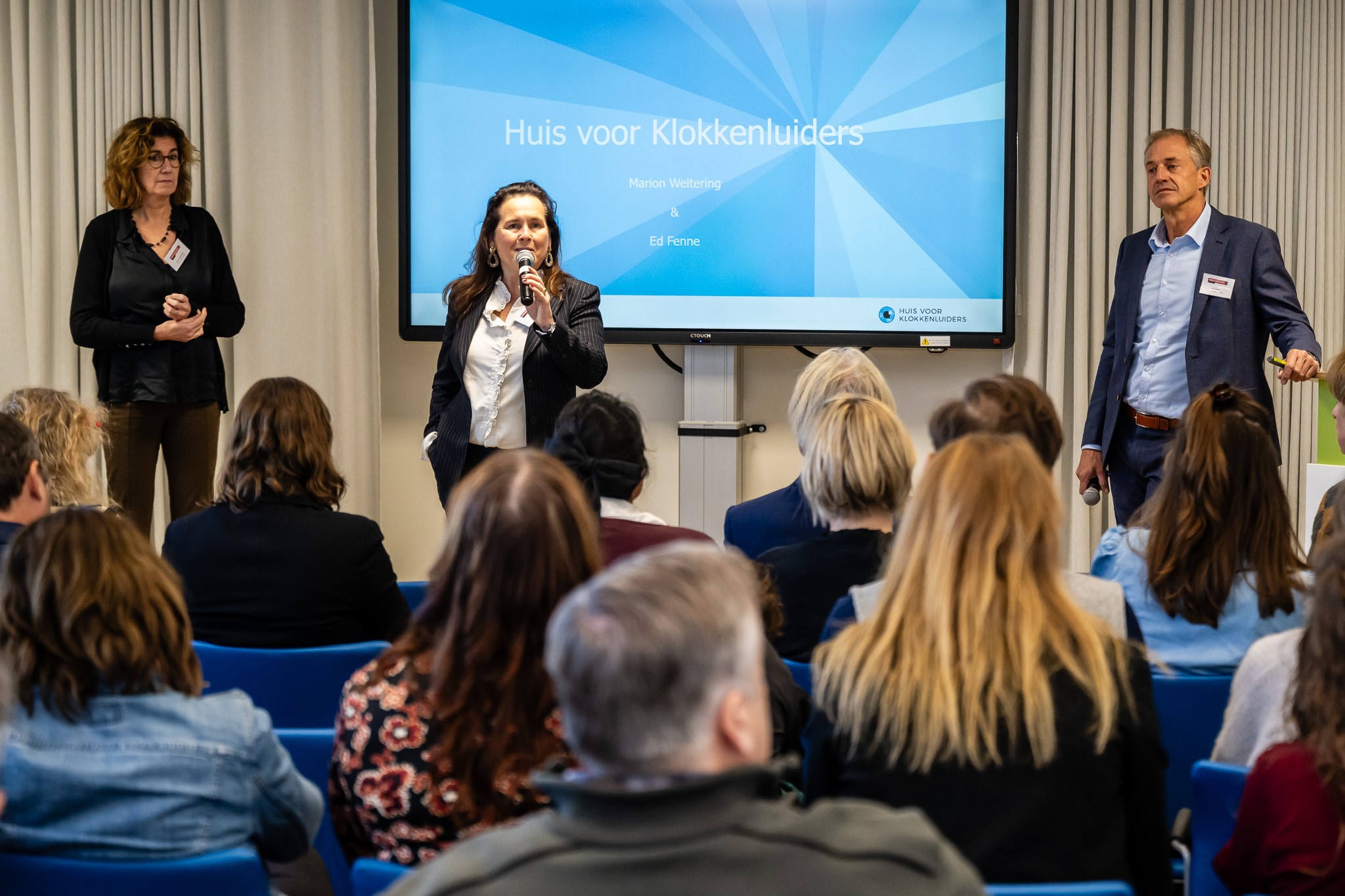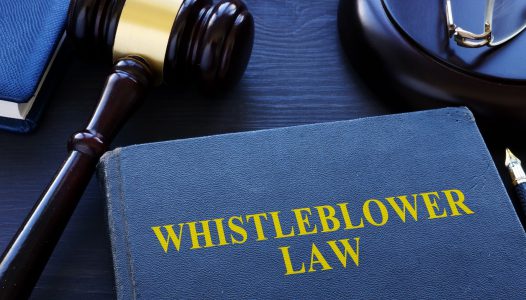by Michel Klompmaker
On 7 November 2023, the Serious Whistleblowing Annual Conference took take place at the Hague University of Applied Sciences in the Hague, Netherlands. The EU Whistleblower Directive has been implemented in the Whistleblowers Protection Act. Employers have set up their internal procedures or are busy doing so. What is of great importance for the professionals in the field is the following: (I) receiving notifications securely, (ii) protecting the reporter, (iii) investigations into reported abuses, (iv) handling and measures, and (v) legal proceedings. This is part one in a series of four articles on the event.
Ed Fenne (Senior Policy Officer at the Knowledge & Prevention Department at the House for Whistleblowers) and Marion Weitering (Coordinator of the Advice Department at the House for Whistleblowers) gave the second talk of the day on what the House for Whistleblowers (hereinafter to be referred to as ‘the House’) does. They began by explaining what the House means. The House was established by law in July 2016. It has an Independent Administrative Body (independent in terms of content) and a Social Advisory Council. The House has approximately 26 employees, a Board and an annual budget of €5.2 million. It is also made up of three departments, which are briefly described as follows:
- Prevention – this department is specifically for employers and is meant to support them for strong integrity and for a speak up culture to develop.
- Advice – This department is specifically for whistleblowers. Its purpose is to advise people who are suspected of wrongdoing (misdeeds). The advisor to whom the whistleblower seeks advice from is also a trusted person.
- Investigation – The House is the last resort here. It is meant to investigate work-related abuses with social importance that were not investigated thoroughly by another organisation.
Both speakers then went into more detail on each of the three departments of the House.
Prevention
In this department, the House has a vision: the organisation has to be integrated if a complaint has been filed and have a desire to solve problems. More simply, as the House, you need to determine if you have the right perspective, and to essentially encourage integrity management. This can be achieved by developing and disseminating practical brochures, factsheets, instruments and other tools.
Advice
Giving advice is confidential and free, but it needs to have a societal impact. When seeking out an advisor, whistleblowers enjoy the fact that they can tell their story without an investigation. The job of an advisor is to always listen well and tell the person where they can obtain the right advice. Does the complaint concern a wrongdoing? How do advisors know if it is a wrongdoing? Reporters always know that they are taking a risk when they file a complaint.
Moreover, advisors try to give advice that someone reported, what they spoke to them about and what their report was. Importantly, the advisor also looks at the reporting process to determine if the person coming to them has followed the right steps. You always begin with the steps that are already determined. What do you want to achieve? For example, if someone wants to go further with a complaint, the advisor must find out what they want to do and also give advice here. Both speakers also noted that it is essential to facilitate a meeting between the reporter and their employer and to always do something with the permission of the reporter. You can also always stop a reporting, if desired.
As for the whistleblowers themselves, they are people that have a particular sense of the law and are emotional. The hope is that whistleblowers come to advisors sooner rather than later in order to not cause stress. However, oftentimes they find themselves in a chaotic situation. The stress is caused through the reporting and because of the reporting. Two examples of stress can be a result of being fired from their job or whether or not to hire lawyers, as they are quite costly. Finally, whistleblowers need to determine what the advantages/disadvantages (or costs/benefits) are of reporting and what they want to achieve.
When it comes to a trusted person, if they properly facilitate the complaint, then they do not need to contact the House. Trusted persons can also ask what their role is. So basically, it comes down to safety first. Be careful about what you do, as there are risks. False reports also exist and investigations are not there to determine if someone is telling the truth when reporting.
Investigation
The investigation department is to investigative abuses. Surveillance and inspection services are on first. How are investigations carried out? For example, by requesting documents, conducting interviews, and (under oath) on site investigations. As a reporter, you cannot go to the House. It is preferred that a reporter goes to an advisor as it takes a long time and costs money to approach the House. When a complaint is made, the employer is made aware of it. A report is also drawn up with conclusions and then published (if necessary and anonymously).
Conclusion
Ed and Marion kicked off their presentation by briefly explaining the three departments that the House is made up of: prevention, advice and investigation. Both speakers then went into a more in depth talk about each department and what their function is. In short, the prevention department is focused on fostering integrity management by disseminating the appropriate tools. The advice department is crucial in the sense that an advisors’ job is to listen properly and ensure that the proper advice is given to the reporter. And lastly, the investigation department’s purpose it to look into complaints.
Photo: At left Marion Weitering and at right Ed Fenne, in between Day Chair Michelle Fisser.






